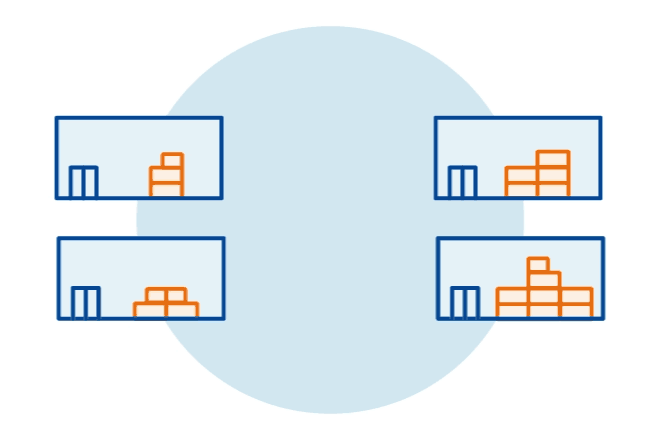Economy is the most affordable way to send parcels. This does involve limitations, such as in size, weight and the possibility of track&trace. A parcel has a maximum height of 3 centimetres in the Netherlands and Belgium and 5 centimetres in France. In other countries, it may be a size of a shoebox. The cost is low, but the delivery time and reliability is lower at this level.

Standard is the most popular shipping method. Think of PostNL, DHL, bpost and La Poste. Independent carriers that ship across Europe, such as DPD, GLS and Hermes, also fall into this category. The price is slightly higher, but you do get a short lead time and the option for Track & Trace.

This level is suitable for high-priority parcels. Premium carriers include UPS and FedEx, for example. Because these players have a global network of hubs, cars, planes and customs offices, delivery is fast and very reliable. However, this does result in higher rates.

If you deliver abroad, you can greatly increase your audience, and thus your e-commerce business. But growing internationally also comes with challenges. For instance, how do you deal with import duties and customs fees? This is something you, as the seller, have to agree with the buyer. The two main types of agreements, also known as Incoterms, are DAP and DDP.

DAP (Duties At Place) means that the seller must deliver products to the destination. So you bear responsibility until delivery. In addition, you arrange exports, such as export declarations to customs. With DAP, the import lies with the buyer: they pay the import duties and taxes at the time of delivery. DAP is the successor to the former DDU (Deliveries Duties Unpaid).

DDP (Delivered Duty Paid) involves maximum obligations for the seller. So you are not only responsible for everything surrounding export, such as export declaration and export documents, but also import in the destination country. Therefore, you bear import taxes such as import duties, VAT or local import taxes. You are also responsible for any documents, such as an import licence.
